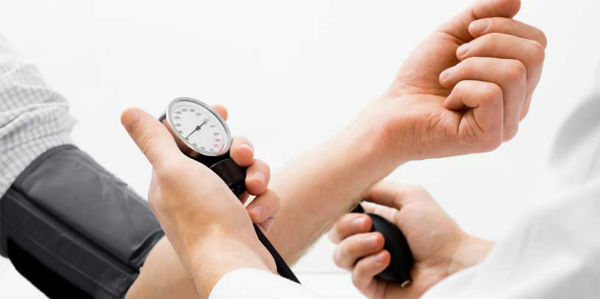How Acupuncture Controls and Maintains Blood Pressure
In its efforts to control and maintain blood pressure, acupuncture relies on a system called the neuroendocrine system. This system includes the endocrine system (mostly the pituitary, hypothalamus, and thyroid) and the complex functional relationship this system has with the nervous system.
The primary objective of the endocrine system is to regulate the metabolism and hormones. The ANS (Autonomic Nervous System) consists of two elements, a parasympathetic element that controls and maintains some basic processes that take place in the body like breathing and blood pressure for example; and a sympathetic element, which assists in the regulation of blood volume and vascular tone of the heart.
On the other hand, the CNS (Central Nervous System) serves as a communication network that works in two ways and involves the spinal cord and brain. This network processes the information that comes from the body and the external stimulants. This information is gathered by the nervous system, transferred from the spinal cord to the brain, and finally, when it reaches the brain this organ sends the necessary signals to the body using the same route.
When it comes to scientific studies and research, the evidence about the successful regulatory impact that acupuncture has on the endocrine system is growing and the same goes for the process of restoring balance to hormones. Some studies involved the effects of acupuncture on corticosteroids, thyroid hormones, and reproductive hormones.
Few recent studies have shown that acupuncture has some excellent results when it comes to certain disorders and problems with the autonomous nervous system especially in cases of insomnia, anxiety, cardiovascular diseases, polycystic ovary syndrome, epilepsy, etc.
In the past ten years, studies that involve neuroimaging as a method to evaluate the impact of acupuncture on brain centers are especially popular and the reason is simple –the technology has advanced a lot in the past decade.
Recent research has suggested that one of the main reasons why people experience high blood pressure is a sympathetic nervous system (SNS) that is excessively active. When this system becomes dominant or excessively stimulated it can lead to vasoconstriction of the arteries found in the heart, which means the body will experience a hypertensive state.
One study that was conducted not while ago confirmed that there are several ways in which acupuncture regulates blood pressure and one of them is by regulating the SNS to lower blood pressure.
Few other studies suggested that acupuncture is better than Captopril, a medication that is often prescribed in cases of high blood pressure. One of these researches was focused on the comparison between Captopril and electro-acupuncture and confirmed that electro-acupuncture brings more positive effects than the pharmaceutical solution for the regulation of blood pressure.
A study conducted in Germany was researching the effects of traditional acupuncture and antihypertensive medications. The final results suggested that the reduction of blood pressure by using acupuncture is as effective as so-called mono-therapies that use ACE inhibitors.
What Are Acupuncture Points?
In cases of hypertension, we choose a combination of specific acupoints. This combination depends on the current clinical picture of hypertension and the causes that led to this state.
You can make many combinations with these points – acupoints can be found on the back or the front part of the body, on the arms and legs, and even on the head.
If we go for the back acupoints, which are usually called Shu points or organ-specific points, we often select Xinshu-BL15 or Jue yin shu–BL14. These points are crucial for the pericardium and the heart in general. They can be found in the upper part of the thorax in the area around the T4 and T5 spinal vertebrae. They supply the heart with nerves (sympathetic nerves to be more precise).
Now let’s see the specific role of these two acupoints:
Xinshu – BL15
- Balances Heart Qi
- Tones and maintains heart health
- Calms the sympathetic nervous system
- Removes heart fire
- Releases the chest from any bonds
Jue Yin Shu – BL14
- Releases the chest from any bonds
- Controls the heart
- Regulates and descends Qi

Treatment with Eastern Medicine
Eastern medicine is one of the oldest systems of medicine. This dynamic system uses many different forms and types of treatments and their use depends on the experience of the practitioner. So, it is no surprise that treatment procedures for blood pressure are different and they depend on the style and experience of the practitioner and the current state of health of the sufferer.
In most cases, they use therapies based on herbs, and acupuncture is used as an activity that can speed up and improve this process. Herbs have much deeper and longer effects compared to acupuncture which treats the symptoms. If they are combined then you can expect to get a very effective treatment plan that can permanently solve your problem.
To have a treatment that is effective and efficient, regardless of the reasons behind the occurrence of high blood pressure, it takes a great effort by the sufferer to implement certain lifestyle alterations that will guarantee a healthy heart in the future. These efforts include:
- Change in nutrition and diet
- Light physical activity like yoga, meditation, or Tai Chi for example
- Good sleep
- Physical exercise suggested by your physician or acupuncturist
Via Cure Joy
